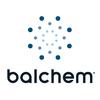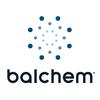
Content sponsored by:
Balchem Animal Nutrition
The effects of dietary rumen-protected choline on mammary DNA methylation patterns
Published: August 7, 2024
Source : A. Celemin Sarmiento 1, B. J. Bradford 2, L. K. Mamedova 2, K. A. Estes 3, and T. H. Swartz 1,2 / 1 Department of Dairy and Food Science, South Dakota State University, Brookings, SD; 2 Department of Animal Science, Michigan State University, East Lansing, MI; 3 Balchem Corporation, Montvale, NJ.
Choline is a methyl donor, which may influence DNA methylation, gene expression, and cellular processes. Past studies have found an increase in milk yield when periparturient dairy cows were supplemented with dietary rumen-protected choline (RPC); however, the mechanism behind this response is unknown. Therefore, the objective of this study was to assess the effects of dietary RPC supplementation on mammary epigenome-wide DNA methylation. Parous Holstein cows were blocked by calving month and then randomly assigned within block to receive either 30 g/d of RPC (13.6 g/d of choline ions; CHOL30, n = 21) or no RPC (CON, n = 19) as a top-dress, starting 24 d before expected calving until 21 d postpartum. Mammary tissue was collected at d 17 postpartum and DNA was isolated. A subset of samples (n = 6 from each group) were randomly selected and submitted for whole-genome bisulfite sequencing. Differentially methylated cytosines, regions, and genes (DMG) were determined using the “genomation” R package. The cut-off values were set at q < 0.05 and absolute methylation difference > 10%. DMG-enriched pathways were analyzed using “ReactomePA” and “clusterProfiler” R packages. We found 29 and 34 differentially hyperand hypomethylated genes, respectively. Reactome pathway enrichment analysis identified 29 and 10 hyper- and hypomethylated pathways, respectively. Hypermethylated Reactome pathways were associated with DNA replication and telomere maintenance/synthesis. Hypomethylated Reactome pathways were affiliated with inflammasomes, metabolic processes, antioxidant defenses, and DNA repair. KEGG pathway enrichment analysis identified 7 and 12 hyper- and hypomethylated pathways, respectively. Hypermethylated KEGG pathways were associated with DNA replication, immune function, fatty acid synthesis/elongation, and AA metabolism. Conversely, hypomethylated KEGG pathways were associated with energy metabolism. In conclusion, dietary RPC supplementation alters mammary DNA methylation patterns, potentially providing a mechanism behind the enhanced lactational performance commonly identified with this peripartum feeding strategy.
Key Words: DNA methylation, mammary gland, methyl donor
Related topics:
Authors:


Recommend
Comment
Share

Would you like to discuss another topic? Create a new post to engage with experts in the community.




